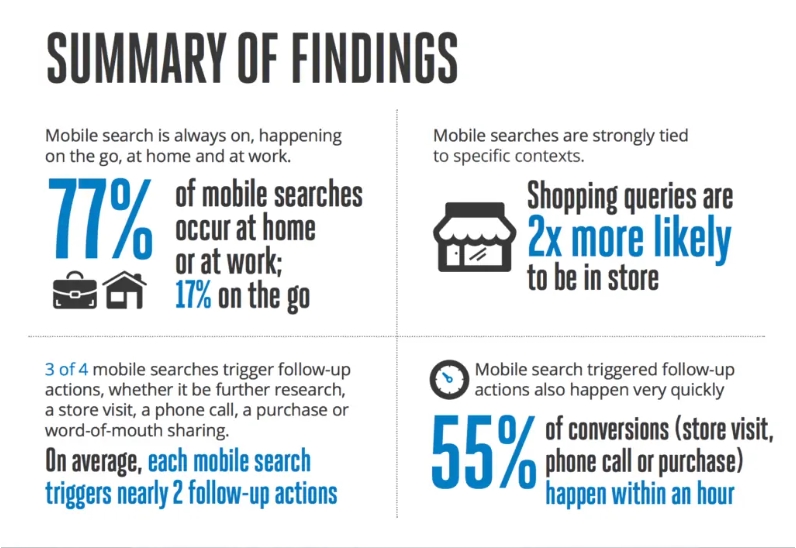Most Internet users now access the web from mobile devices, so SEO must adapt quickly. The mobile user base is rapidly expanding as Internet access spreads to more and more areas of the country. SEOs and digital marketers are now prioritizing mobile keywords over desktop keywords because of this difference.

Therefore, you need to concentrate on Mobile keyword research if you want to achieve high rankings in search engine results pages and increase mobile traffic. Currently, Google and other search engines are prioritizing mobile-friendly versions of websites in their indexing and ranking algorithms. SEMrush published a study showing that only 23% of SEOs and marketers are adapting their content for mobile devices. This presents an opportunity to boost your mobile search engine rankings by employing specific strategies.
Desktop and mobile search results are prioritized in different ways by major search engines like Google and Bing. Specifically, they employ a new algorithm to enhance the mobile user experience. To please both users and search engines, mobile keyword optimization must take a mobile-first approach.
This article will define mobile keywords and provide practical advice for conducting effective mobile keyword research.
Create Amazing Websites
With the best free page builder Elementor
Start NowWhat Is Mobile Keyword Research?
Mobile keyword research is the process of figuring out what words or phrases a mobile user might look for. Most of the time, mobile keywords are more localized and specific.
Let's look at an example to see what it means. Let's say you want to find a mobile cover for your phone. Then you probably type in "mobile phone shop near me" or "Mobile phone shop + [city]." This means you want to buy a cell phone case right away. But if you're looking for a mobile cover from home, you'll care less about price, whether you buy it from a store nearby or through an online store. Mobile users are most likely in the "transactional" phase of the sales funnel, which means they want to buy the product right away. Here, the rate of change is high.
Mobile keyword research is the process of using SEO tools and techniques to figure out which keywords are most likely to be searched only on mobile devices, bring in organic traffic, and lead to sales.
Difference Between Mobile SEO and Desktop SEO?

Now, anyone can use a mobile device to connect to the internet from anywhere. So, Google started putting in place some algorithms, like mobile-first indexing, to make the user experience better. With these changes, mobile and desktop search results will be similar, but not always the same.
Google just started using the core web vitals to measure how a website makes its users feel. Google shows the search results based on what the user is looking for, where they are, and what device they are using.
Mobile keywords are usually shorter than desktop keywords because people who use mobile devices want to get to the result quickly without having to type a lot. They also use voice search to find what they are looking for.
Also, most mobile search queries are local because most people use their phones to search while walking, driving, taking the bus, or riding the metro. They want results right away.
In mobile keyword research, user intent is very important, so try to solve the user's problem at the beginning of your article and then explain everything else.
How To Do Effective Mobile Keyword Research?
So far, we've talked about what mobile keywords are. Let's talk about how to find mobile keywords that will help your content rank higher in mobile search results.
Analyze Your Currently Ranking Keywords

The first step in researching mobile keywords is to find out which keywords your website already ranks for. You can easily keep track of how your keywords rank by using tools like Ahrefs, SEMrush, Whatsmyserp, etc., which are both free and cost money.
This will help you figure out which keywords are doing well in the SERPs and which ones are doing badly. You can make more content based on the keywords that are working well right now.
You can also use tools like Ahrefs and SEMrush to keep track of the keywords that are ranking on the sites of your competitors.
Understand The Search Queries
It's important to know what kind of questions to ask when looking for mobile keywords. Here are some common types of searches made on mobile devices:
- Spoken or typed
- Local or informational
- With typos or typo‐free
When we compare local searches to informational searches, it all comes down to what the searcher wants to find. If a person is looking for local queries, he or she is likely to include city or neighborhood in the search. Here are some examples of local search terms: "digital marketing institute in Delhi," "mobile phone shop near me," etc. But it is less likely that geographical indicators will be added to informational queries.
So, if you have a local service or business, instead of trying to reach people all over the world, you can focus on local/mobile keywords to improve your ranking and sales. If you want to target spoken queries, you need to know that they are usually questions and are written in a conversational style.
Sometimes, some related keywords or keywords that were misspelled can help you get traffic. So, you should always look at Google's "People also ask" section.
Familiarize Yourself With SERPs

You need to learn more about how Google's SERPs (Search Engine Result Pages) are changing. You can use a variety of tools to track SERPs results based on location, device type (Windows, Android, iOS, etc.), and other factors.
The result for a certain keyword depends on what the searcher wants to find. If a user searches for local results, Google most likely uses a Map or a local listing for that keyword. At the same time, if a user is looking for information, Google will show him different search results, like a quick answer box.
Identify Shorter Keywords
Most likely, mobile keywords are shorter, since people don't want to type a lot on small devices. They want a quick way to solve their problem. So, try to use keywords that are short whenever you can.
There are a few exceptions, such as voice search, which tends to be longer and based on questions. So, try putting the keywords or queries in the form of a question. You can also write headings in the form of a question. It will help search engines and people understand the question and how to answer it better.
Target Location‐based keywords
Keywords that are based on location are the most important part of mobile keyword research. Most people search for these words to get results that are specific to their area. For example, let's say you run a fitness center in London and you want to rank for phrases like "fitness center near me" or "fitness center close by." If you only use this keyword in your content, you won't rank well for it. Users in London won't be able to find you.
So, if you want your keywords to rank well in London, you need to join "Google My Business." Google Maps can also show where your business is. These steps will help you improve your keyword rank for "nearby" and "near me," so your website or business will show up in Google's local searches.

Conclusion
If you want to take SEO seriously, your marketing strategy should include a lot of mobile keyword research. SEO is changing, and it's becoming more mobile. If you're not ready for a mobile world, it could hurt your SEO in a big way.
But researching keywords for mobile isn't hard. In fact, it's easier in many ways than desktop keyword research. But you have to do a lot of research, know a lot about your audience, and be able to come up with SEO strategies that change as your users do.
It sounds like a lot, but if you use the tips in this article, I can promise that your mobile SEO will get better. You'll show up higher on search engines, which will help more people find your business.
How people search is changing. You want people to find out about you quickly and easily, whether they use text-based searches or programs like Siri or Google Goggles.
If you do these things and learn to use these new ways to search, you'll be way ahead of the game.





